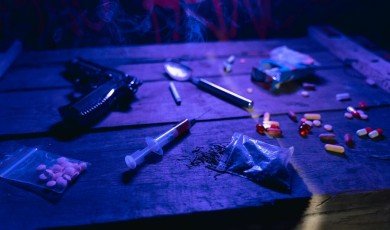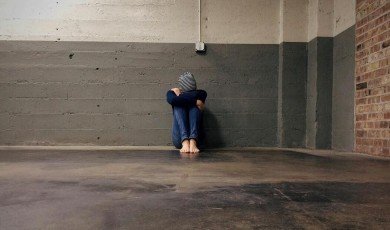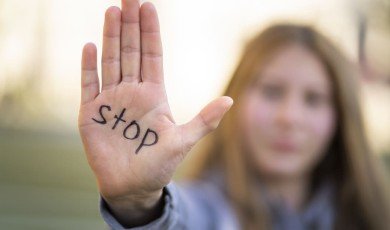
Human trafficking remains one of the darkest and most widespread crimes of the modern era. Despite the progress made through international cooperation, millions of people worldwide still fall victim to exploitation every year. Forced labor, sexual slavery, organ trafficking, and child exploitation are not just statistics — they are daily realities that affect individuals in every region of the world.
Today, a growing global movement is uniting governments, organizations, and citizens to confront this crisis head-on. Collaboration across borders has become the most powerful weapon in the fight against trafficking, transforming awareness into action and compassion into tangible results.
A Global Problem That Demands a Global Response
Trafficking in persons is not confined by geography, culture, or economic status. It operates through complex international networks that move victims across borders and hide them behind digital anonymity. Because of its transnational nature, no single nation can combat trafficking effectively on its own.
That is why unity and cooperation are essential. From the United Nations to local NGOs, from law enforcement agencies to social workers, the effort to stop trafficking has become a collective global mission. International conventions, such as the Palermo Protocol, have created legal frameworks that encourage countries to criminalize trafficking and protect survivors. Yet, the true strength lies in implementation — when governments share intelligence, synchronize legal systems, and support one another in rescuing victims and prosecuting perpetrators.
Global unity has already achieved significant progress. Cross-border police operations, awareness campaigns, and shared databases have led to the identification of thousands of victims and the dismantling of organized trafficking rings. Still, much work remains, especially in preventing new forms of exploitation fueled by poverty, conflict, and migration crises.
The Role of Communication and Language
In the global struggle against trafficking, communication plays a decisive role. Victims, activists, and authorities often come from different linguistic and cultural backgrounds. To coordinate rescue operations, exchange information, and support survivors effectively, precision in language becomes vital.
This is where german language translation services and other professional linguistic support systems become indispensable. Whether it’s translating legal documents, interpreting at international conferences, or ensuring accurate communication in courtrooms, translation professionals make collaboration possible. When organizations across Europe work together — such as Germany partnering with Eastern European or African nations — german language translation services ensure that no misunderstanding undermines justice or delays urgent action.
Language is not merely a technical necessity; it’s a bridge that connects compassion and policy, ensuring that every victim’s story is heard and every international effort is coordinated clearly.
Governments Leading Collective Action
The world’s governments are increasingly recognizing trafficking as both a human rights and a security issue. Many have established national task forces that collaborate through international bodies like INTERPOL, Europol, and the United Nations Office on Drugs and Crime (UNODC).
Countries are sharing intelligence, training police officers, and harmonizing their legal definitions of trafficking to close the loopholes that criminals exploit. In Europe, for instance, joint operations between Germany, France, and Italy have resulted in hundreds of arrests and the rescue of trafficked victims from forced labor and sexual exploitation.
Beyond law enforcement, governments are also funding prevention campaigns, supporting shelters for survivors, and integrating anti-trafficking education into school systems. These actions reflect a growing understanding that prevention is as crucial as prosecution.
The Power of NGOs and Civil Society
While governments play a key role in legislation and enforcement, non-governmental organizations (NGOs) and activists form the moral backbone of the anti-trafficking movement. They work on the ground, providing victims with protection, counseling, education, and rehabilitation.
Organizations such as the Coalition Against Trafficking in Women, ECPAT International, and Anti-Slavery International have been instrumental in giving survivors a voice. They also pressure institutions to act faster and hold corporations accountable for unethical labor practices.
Many NGOs collaborate across borders, forming regional coalitions to exchange resources and strategies. Their ability to connect local realities with international frameworks has proven essential in creating holistic solutions that address both symptoms and root causes.
Technology and Awareness as Modern Tools
Technology, often used by traffickers to hide their crimes, is now becoming a tool for liberation. Artificial intelligence and data analytics help track suspicious online activity and detect recruitment patterns on social media. Blockchain systems are being tested to ensure transparency in supply chains, preventing the use of forced labor in global production.
At the same time, awareness campaigns have gained momentum thanks to social media and global advocacy events like the World Day Against Trafficking in Persons. These initiatives empower citizens to identify signs of exploitation and report them, turning passive concern into active vigilance.
The Importance of Education and Empowerment
Education remains one of the most powerful ways to prevent trafficking. By addressing poverty, inequality, and lack of opportunity — the main drivers of vulnerability — societies can cut off the supply chain of victims.
Empowering women and children through access to education, job training, and legal protection creates resilience. Communities that are informed and economically stable are far less likely to fall prey to traffickers. Schools, universities, and community centers worldwide are beginning to integrate human rights and trafficking awareness into their curricula, fostering a generation that values dignity and vigilance.
Building a Culture of Global Solidarity
The fight against trafficking is not just about law enforcement — it’s about humanity. Each rescued victim represents a life reclaimed, but also a reminder that the world’s systems must work together. When nations cooperate, when NGOs coordinate, and when businesses adopt ethical standards, real change happens.
Global unity transforms fragmented efforts into a collective force for justice. It sends a message that exploitation has no place in a civilized society and that no victim will be forgotten or silenced.
As technology evolves and international relations grow more complex, cooperation across languages, sectors, and borders will define the future of the movement. From government offices to grassroots initiatives, the call is the same: unity is strength.
The global community now stands at a turning point — one where solidarity, understanding, and compassion can outpace greed and corruption. Together, humanity can build a world where trafficking is no longer a hidden crime, but a conquered one.
Most Read
Featured Posts







